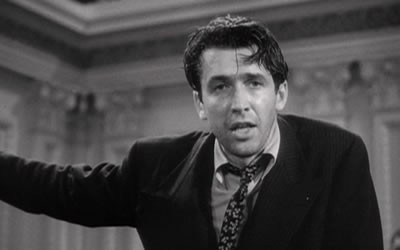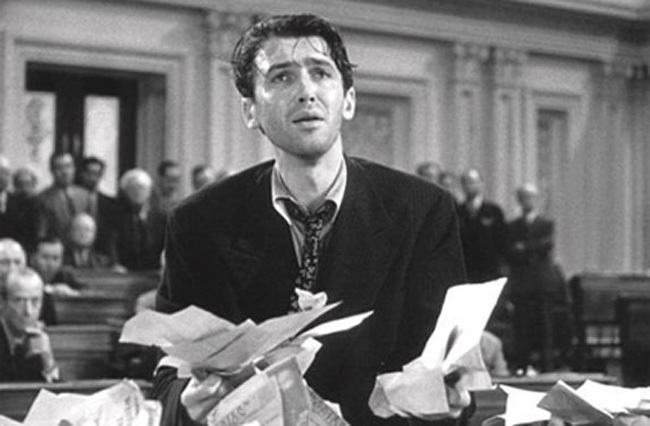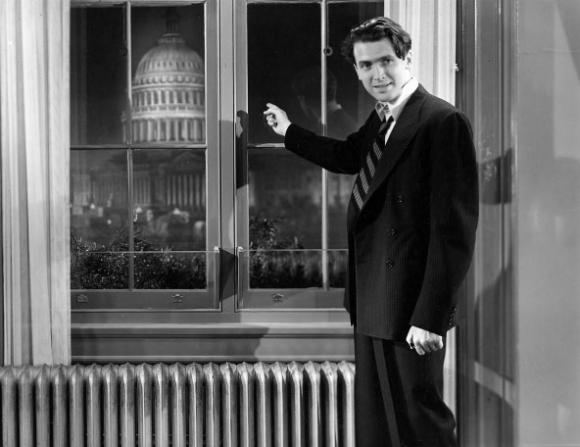It is December 2012 and the Senate stands on the cusp of changing its internal rules to limit the filibuster, which is the individual power to obstruct and delay. Advocates of filibuster reform have virtually guaranteed that if the power to obstruct in the Senate is limited, then the Congress will magically transform into an efficient legislative body and produce all sorts of great and worthy laws. And they are willing to change the Senate rules by a simple majority rather than the higher threshold of two-thirds of the Senate. In one fell swoop, they would turn the Senate into the House of Representatives — that is, a majority controlled body. In this way, hasty filibuster reform is both unrealistic and dangerously shortsighted.
The Senate was created as part of a bicameral (two-chamber) legislature whose mission was to represent all the people. The framers of the Constitution created a legislative branch consisting of two parts to maximize representation but minimize the probability that a majority could sweep through Congress and pass harmful or irresponsible legislation. The House would be apportioned according to population size and adjust its size after each census, but the Senate would stay fixed at two senators per state. By 1929, the House had grown so big that the Congress passed a law to permanently cap its size at 435. To deal with its size and workload, the House organized itself into a majority-party, committee-based institution. Key to majority party control is the ability to move the previous question — that is, to effectively close debate with a majority vote. With the growth of political parties and partisanship, this device essentially allows the majority party to ride roughshod over the members of the minority party, who have little to no power.

In contrast, the framers did not allow the number of senators apportioned to each state to change with population growth. With the permanent limitation of two senators for each state, the Senate would remain a small chamber in which senators would be forced to face each other to deliberate the merits of every bill. James Madison wrote a letter to George Washington on April 16, 1787, in which he explained that senators should stay in office longer than House members, that they should be reelected at different times to make sure to leave a majority of continuing members in office after each election, and that, as a result, “the negative on the laws might be most conveniently exercised by this branch.” Madison elaborated on this argument in Federalist No. 62, where he wrote that there is a tendency for “single and numerous assemblies, to yield to the impulse of sudden and violent passions, and to be seduced by factious leaders into intemperate and pernicious resolutions.” By keeping the Senate small and making sure that a majority of senators were never up for reelection at the same time, the framers gave the Senate the task of slowing down the legislative process.
The combination of small chamber size and equal apportionment gave senators the sense that they were all equal to one another, as opposed to the feeling in the House, where members from larger states had a sense of power over their smaller-state colleagues. And a fundamental part of that equality rests in Rule XIX of the Senate, which states that “When a Senator desires to speak, he shall rise and address the Presiding Officer, and shall not proceed until he is recognized, and the Presiding Officer shall recognize the Senator who shall first address him.” In other words, any U.S. senator can use their right to be recognized on the Senate floor to delay legislation in the U.S. Congress indefinitely or permanently. And unlike the House, the Senate did not make the power to move the previous question to end debate a regular part of their operating procedure.
Supporters of filibuster reform argue that it is fundamentally unconstitutional because it can be used to thwart the will of the majority and they point to the most offensive examples of its use to argue that it should be eliminated. Certainly, when southern senators filibustered civil rights legislation in the 1930s, 1940s, and 1950s (before finally losing their obstructionist battle in the 1960s), they were using the filibuster to deny fundamental human rights. As reprehensible as denying African-Americans the right to vote was, those southern senators were using the filibuster to represent what they perceived to be the views of their white constituents. But the Senate was not the only culprit here; powerful southern committee chairmen in the House of Representatives were also using their majority committee power to stall or block the same legislation. The division over civil rights was deep and profound, and it is not at all clear that it was only the procedural mechanism of the filibuster that stood in the way of civil rights legislation.

The goal of a filibuster is not always to kill a bill, amendment, or nomination. Frequently, senators use the power of delay to draw attention to local issues in their states or to raise ideological issues, present the minority-party viewpoint, or extract some benefit from the president. The filibuster has been used in a wide variety of ways by senators seeking to assert their own power as well as represent their states and constituents. Even beyond the profound responsibility that U.S. senators have to protect their home states’ interests, senators also use the filibuster to slow down or halt legislation that they believe will be harmful to individual rights. For example, when the Patriot Act was up for reauthorization in 2005, both Democratic and Republican senators used the filibuster to obtain more protections against government intrusion on privacy and surveillance of individuals. In 2011, Sen. Rand Paul (R-KY) also used the filibuster to obstruct the reauthorization of key provisions of the Patriot Act until they were converted from permanent reauthorizations to four-year extensions.
If it were not for the power to filibuster, how could ordinary citizens, companies, or states stand up for their own interests in a majoritarian system of government? In the House of Representatives, the majority party grants the minority permission to present its alternative legislation on the floor only if the majority is certain it has the votes to defeat the minority’s proposal. And in today’s atmosphere of unprecedented partisan polarization, there is virtually no consideration of the minority position on any bills that are passed by the House of Representatives. In the Senate, the majority party has the power to bring to the floor the bills it wants to pass, but any senator from either the majority or the minority party can object to the consideration of that bill or, in the extreme, filibuster it. The filibuster in the Senate provides a crucial opportunity for senators in the minority to represent the views of their constituents and to persuade the majority to consider their alternative policy ideas. In short, the filibuster acts as a crucially important vehicle for the minority to influence national policymaking.
However, one of the consequences of the increased partisanship in Congress is that senators from the minority party sometimes use the filibuster to score political points rather than to take principled stands based on individual beliefs or constituents’ interests. The filibuster has also been used much more frequently to block judicial nominees based on their perceived ideological positions rather than their judicial qualifications. To some, this use of the filibuster violates the principle of an independent federal judiciary and treads on the president’s constitutionally based appointment power. Senators from both parties are guilty of this abuse of the filibuster, and it has occurred under both Democratic and Republican control of the Senate.
Such brinkmanship does not reflect well on either political party, but it also illustrates that there should be limits to the use of the filibuster as a tool of obstruction — limits that are tied directly to the political costs associated with misusing the extraordinary power of the filibuster.
The solution to the abuse of the filibuster lies not in abolishing it but in enforcing the basic requirements of extended debate. How many stories do you hear today of senators pulling all-nighters to filibuster a bill or amendment? The answer is very few. Instead, senators can merely raise the threat of objecting to a bill to signal that they might actually talk long enough to delay it, and their demands are considered by their colleagues. Given that the filibuster has now been reduced to a mere sentence or two voicing an objection to a motion, it is no wonder that we have come to believe it is at the heart of all legislative delay. In fact, the abuse of the power to filibuster stems from the failure of the Senate as a whole, and the majority-party leadership specifically, to enforce the basic requirement that a filibuster consist of extended speech.
The U.S. Senate today has a legislative workload that is unparalleled in its history. Moreover, in addition to their legislative responsibilities, senators are expected to meet with government officials and key constituents as well as raise funds for their next reelection campaigns. In 2010, incumbent Senators seeking reelection spent an average of $9 million; Democrats spent a little over $11 million while Republicans spent nearly $7 million. Senate incumbents who hope to defend their seats no longer have the time to stand on the Senate floor and talk, much less listen.
An upside to the high cost of running for reelection is that it could serve as a great disincentive to spend time abusing the right to filibuster. If a senator could filibuster a motion only by coming to the Senate floor, standing up, getting recognized to speak by the presiding officer, and then proceeding to talk without stopping, we would certainly see a dramatic drop in the number of supposed filibusters. Senators would engage in filibustering only when the issues at hand are of vital importance to their constituents or themselves. Opponents of the filibuster argue that trying to enforce the extended speech aspect of the filibuster is unrealistic. They argue that the majority leader is elected by the senators from his or her party, and no majority leader would be willing to risk the wrath of fellow senators by forcing them to stand up and talk indefinitely. But that answer does not hold up well in light of history; plenty of majority leaders have enforced the filibuster and kept their jobs. If the cost of filibustering were higher, then senators would be less likely to use this tactic to delay the Senate’s business, and that would both make the job of majority leader easier and increase the productivity of the U.S. Senate.
The Senate was designed to be a bulwark against rash decision making by the federal government. The framers of the Constitution knew that they were taking a risk by giving a centralized government ultimate power over each state; they split the legislative branch into two chambers in order to maximize the venues where citizens could have their voices heard and their interests addressed. In the House the voice of the majority carries the day, but in the Senate all senators have equal power to voice dissent. The filibuster provides an essential incentive for Congress to reach a compromise among the competing interests, opinions, and ideologies that characterize American democracy.

